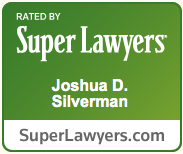When Faulty Goods Cause Injury: Product Liability FAQs
- Must products have warnings?
- How safe must products be?
- Is a product "defective" because it harmed me?
- What is the statute of limitations for filing a product liability lawsuit in Virginia?
- Are Virginia products liability cases simple?
- Do I have to give notice of breach of warranty?
- What About Warranties?
- What if I am injured by the product while I was misusing it?
- What if I didn't buy the product?
- What if the product was not bought new, but rather was bought used?
- Who can be sued in a product liability lawsuit?
Q: Must products have warnings?
A: If a product is inherently dangerous and the danger is not obvious, the supplier must adequately warn of the foreseeable risks of using the product. If the supplier fails to warn of such risks, a claim can be brought for the failure to warn. If the danger is obvious, there is no duty to warn.
Q: How safe must products be?
A: Under Virginia law, a product must be reasonably safe for the purposes for which it is intended and for its reasonably foreseeable uses. Products are not required, however, to be designed or produced with features representing the ultimate in safety as in many cases that is simply impractical or would make the product too expensive.
Product manufacturers are required to consider the fact that their customers are human and it is foreseeable that the product may be misused. They are required to design and manufacturer their products to be safe even for "foreseeable misuse." That does not mean the product must be fool proof.
In investigating a product liability case, an important consideration is whether there are safer alternatives to the design of the product. In many cases, the manufacturer has chosen to cut corners to increase profits despite the foreseeable risk to the consumer.
Q: Is a product "defective" because it harmed me?
A: Just because you have been injured does not mean the product is defective. There must also be negligence or breach of warranty by the defendant(s) for you to have a successful claim. Examples include manufacturers who have chosen to ignore known dangers to the product even though they could have been designed to be safer.
In preparing a product liability case, a critical starting point is searching for evidence of a pattern of problems with the product. This has become much easier to do with the growth of social media and Internet searches. Government websites also provide valuable information about recalls of automobiles, medical devices and other consumer products due to defects.
Q: What is the statute of limitations for filing a product liability lawsuit in Virginia?
A: In Virginia, a person injured by a defective product usually has two years from the date of injury to file a lawsuit. If a lawsuit is filed after that time it may be dismissed by the Court for being filed too late. There are several exceptions to this two year statute of limitations which apply in various situations. For example, if the injured person is a minor or is mentally incompetent, the period for bringing suit may be extended. It is best to contact an attorney as soon as possible after an injury to determine the length of time available to file a lawsuit.
It is also important that your lawyer have ample time to conduct a thorough investigation of the case well in advance of the Virginia statute of limitations to have the defective product examined by qualified experts, to identify the proper defendants to the case, and to prepare the lawsuit. We will also need time to obtain the medical records to be prepared to prove the extent of our client's injuries. In many cases that also means hiring medical experts. All of these steps can take many months to complete, so there is little room for delay.
Q: Are Virginia products liability cases simple?
A: Lawsuits brought against companies who have designed, manufactured, distributed, or sold products are quite complex. These types of cases often involve complex scientific and technical matters requiring a thorough understanding of not only the law which applies, but also the science and technology involved in the design and manufacturing processes. Joshua Silverman is experienced in dealing with such complex scientific and technological issues and enjoy the challenge of becoming knowledgeable in these areas in order to best represent our clients.
Examples of product liability cases handled by Josh Silverman include defective medical devices, defective airbags, defective motorcycles, and food poisoning.
Q: Do I have to give notice of breach of warranty?
A: Virginia law requires a buyer to notify the seller of a product of any product defect within a reasonable time after the buyer discovers or should have discovered the defect. This requirement does not apply to non-purchasers of the product who are injured by the product.
The general requirement to give notice of the defect is one of many reasons why it is critical to retain a products liability lawyer promptly after a claim arises. In addition to giving notice of the claim, it is important to secure the defective product as it will be the most critical piece of evidence in a case. Unfortunately I have had to decline what may have otherwise been strong cases because the defective product was no longer available.
Q: What About Warranties?
A: Many products come with express warranties. In some circumstances, statements made about the quality or characteristics of a product in advertising literature or sales negotiations will be deemed to be an express warranty. If you are harmed by a product because of a feature that did not live up to its warranty you may have a valid claim. In addition, in most sales and leasing situations, a warranty is implied that the product is reasonably safe for its intended use and other reasonably foreseeable purposes. If a product is sold or leased is unreasonably dangerous, then there is a breach of this implied warranty and you may have a valid claim.
Q: What if I am injured by the product while I was misusing it?
A: Manufacturers must warn you of dangers associated with a misuse of the product only if the misuse is foreseeable. For example, a Court has ruled that a manufacturer should have foreseen that an infant would ingest furniture polish. If the misuse was not foreseeable, there is no duty to warn of the danger of misusing the product.
Q: What if I didn't buy the product?
A: In the past, if the injured person was not also the purchaser of the product the injured person was not permitted to bring a lawsuit. However, the law has been changed. Now, you are not prevented from bringing a lawsuit simply because you did not buy the defective product yourself. Likewise, you are not prevented from bringing a products liability lawsuit just because you leased the product rather than having bought it.
Q: What if the product was not bought new, but rather was bought used?
A: You can still bring a claim even if the product was not bought new.
Q: Who can be sued in a product liability lawsuit?
A: Depending on the specific facts which apply to your situation, in Virginia, it may be possible to bring a lawsuit against the designer of the product, the manufacturer, the distributor, the wholesaler, or the seller of the product.
Contact Us
For more information on product liability cases, contact Silverman Law Firm LC or call (804) 325-4992.




